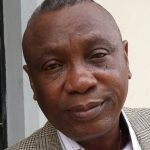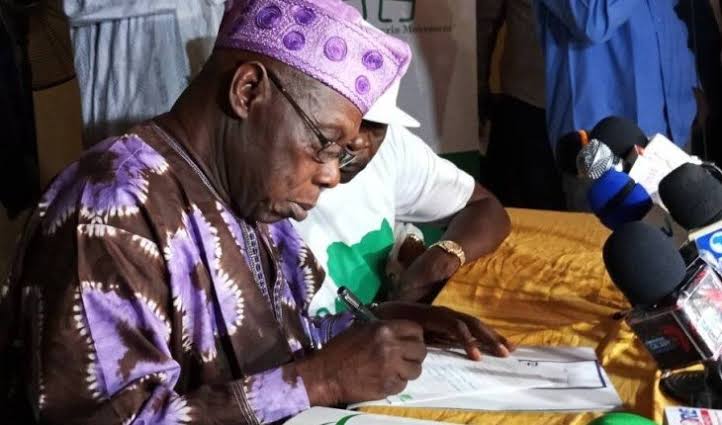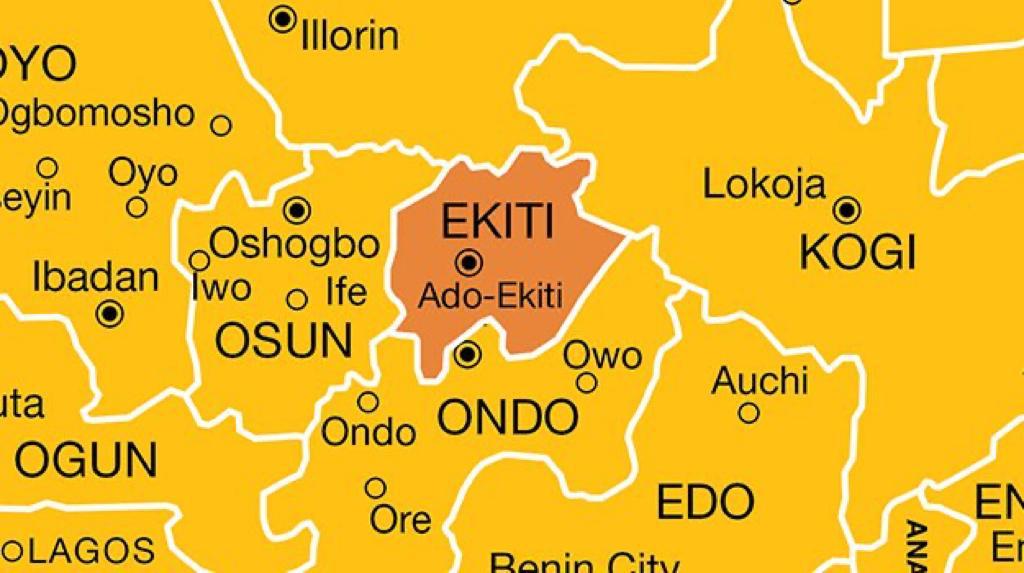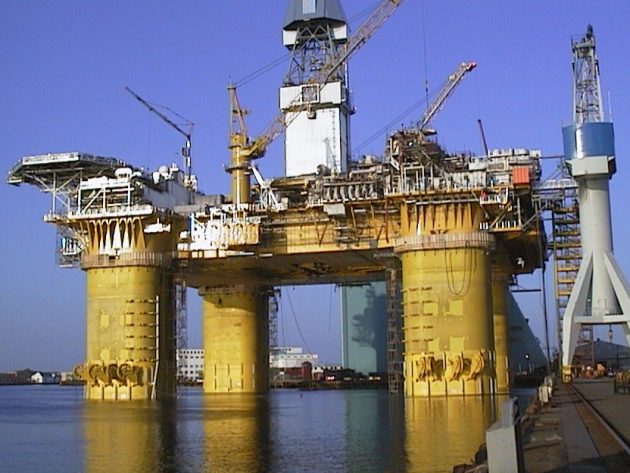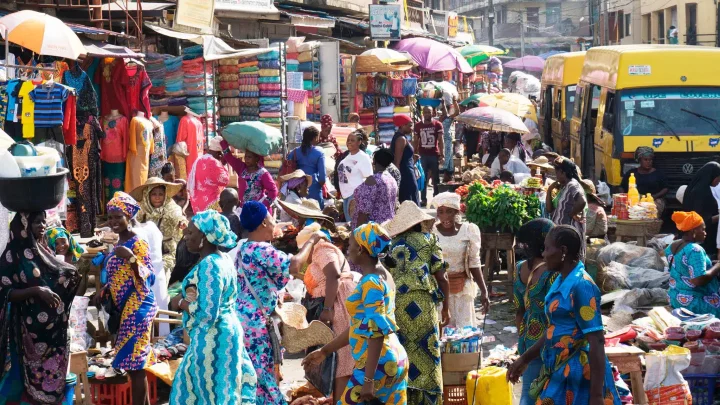Of all appointments to be made by the President Elect, Asiwaju Bola Ahmed Tinubu, none will define his presidency than the appointment of Minister of Petroleum. There are Ministers and there are Ministers but the Minster of Petroleum in this country is in a class of his own.
He or she holds the key to the nation’s treasury. We shall know by the appointment the direction of his government.
Petroleum subsidy to be not to be, our refineries will have great impact on our future and these are issues that the next Petroleum Minister will have to determine.
Asiwaju Bola Tinubu has several choices over the appointment. He could appoint himself like General Abdusalami Abubakar GCFR, President Olusegun Obasanjo GCFR and President Muhammadu Buhari GCFR all did. Afterwards he is from the oil industry. He could appoint someone either inside or outside of the oil industry. Or he could appoint someone from the South south region so as to compensate to the people of that region. Afterwards the oil comes from their area. The Minister of petroleum is not just an ordinary person in this country or outside of this country.
Advertisement
I remember Sheikh Zaki Yamani (June 30, 1930-23 February 2021) who was the embodiment of the ascent of the Arab Petroleum Power and the face of oil embargo of 1973, who brought the Western world to its knees. I was in the Presidency during the Sani Abacha era and I knew the influence of the then Petroleum Minister, Senator Dan Dauzia Loya Etete (78). We still remember the power and the influence of Mrs Diezani K. Agama Alison-Madueke (62) during the Goodluck Jonathan Presidency.
Let us take a look at the schedule of the Minister of Petroleum. My last check showed that he has more than twenty schedules of responsibilities. They are formulation and implementation of policies and programmes, supervising NNPCL, supervising National Petroleum Investment Management Services (NAPIMS), Crude Oil Matters, OPEC Matters, Nigerian Gas Company, Nigerian Liquefied National Gas, Department of Petroleum Resources and Nigerian Petroleum Development Company.
Other responsibilities are Integrated Data Services, Eleme Petrochemicals Company, National Engineering and Technical Company, Petroleum Training Institute, Petroleum Equilisation Fund, College of Petroleum Studies, Chairman, Ministerial Tender’s Board and Postings, Research and Development(R & D), Abuja Offices and Housing Projects and African Petroleum Producers Association Matters.
Advertisement
The seven agencies under the Minister of Petroleum Resources are Nigeria National Petroleum Corporation (NNPC) is now known as the Nigerian National Petroleum Company Limited established April 1 1977, Nigerian Upstream Regulatory Commission (NURC)—established August 16, 2012, Petroleum Training Institute (PTI) established 1973, Petroleum Technology Development Fund (PTDF) established 1973, Nigeria Nuclear Regulatory Authority (NNRA) established August 3 1999, Nigerian Content Development Management Board (NCDMB) established in 2010, and Nigerian Midstream and Downstream Petroleum Regulatory Authority (NMDPRA) established August 16, 2021.
The powers of the minister of petroleum resources under the Petroleum Act extend to all segments of the industry and span the policy, regulatory and commercial spheres. For example: in the commercial sphere, the minister is empowered to set the prices of petroleum products; in the policy sphere, the minister sets the policy priorities for the industry through policy pronouncements and directives; and in the regulatory sphere, and arguably most importantly, the minister has extensive powers to make determinations, prescribe anything required and make regulations and policies for the industry.
The minister is the apex regulator of the industry, imbued with wide discretion. The Department of Petroleum Resources carries out the day-to-day regulation of the industry on the minister’s behalf.
The culmination of the minister’s powers in the commercial sphere and his obvious conflict of interest may be seen in his appointment as chair of the Nigerian National Petroleum Corporation (NNPC), the national oil company.
To my knowledge the Minister of State for Petroleum or special adviser to the President on Petroleum matters may carry out any of these schedules as may be delegated by the Minister of Petroleum. No wonder General Abdusalami Abubakar (80), President Olusegun Obasanjo (86) and President Muhammadu Buhari (80) placed the Ministry of Petroleum Resources under their direct supervision.
Advertisement
In 2002, the then House of the Representatives, under the leadership of Alhaji Ghali Umar Na’Abba(64) from Tudun Wada Constituency in Kano queried President Obasanjo for appointing himself as Minister of Petroleum. That was when the House of Representatives could bark and bite.
The query then was that “Mr. President has refused to appoint a Minister of Petroleum Resources which action has occasioned the following: (a) that since inception of this Government in 1999 Mr. President refused, failed and or neglected to appoint a Minister of Petroleum Resources contrary to the Petroleum Act cap 350, laws of the Federation as amended by the Petroleum (Amendment) Act No. 22 of 1998 and thereby authorizing the performance of or performing yourself the functions of the Minister of Petroleum Resources (b) that in breach of Section 9 (1) d III laws of the Federation 1990 appointed the Committee which has increased the prices of petroleum products which function is that of a Minister of Petroleum Resources under the said Act, which Act constitutes a gross misconduct (c) that a process of establishing the refineries through bidding was established and provisional licenses were issued without the approval of the Minister of Petroleum as required by 3 (1) of the Petroleum Act which Action amounts to gross misconduct”.
President Olusegun Obasanjo’s response was that “Under Section 5 of the 1999 Constitution, the Executive powers of the Federation are vested in the President who may exercise same directly or through the Vice President, Ministers or officers in the public service of the Federation. It is apparent from the wordings of this section that it is within my discretion to exercise these powers directly or delegate same to certain functionaries.
In the same vein, Section 147 (1) of the Constitution makes provision for such offices of the Ministers of the Government of the Federation as may be established by the President. This clearly gives me the discretion over which office of Minister to establish. The Constitution does not specify the Ministries which I have to establish or the powers which I may delegate to Ministers.
Advertisement
It is therefore within my constitutional powers to choose not to establish the office of the Minister of Petroleum Resources and directly exercise executive control over petroleum matters. It is immaterial that the office of Minister of Petroleum Resources is provided for in the Petroleum Act as the provisions of the Constitution take precedence over that of an existing law in the event of a conflict”.
President Olusegun Obasanjo GCFR made his reply on September 7, 2002.
Advertisement
The appointment of Petroleum Minister in this country has always generated controversy.
The pioneer Minister of Petroleum was Colonel Muhammadu Buhari GCFR in 1977. It was during his tenure that THE PUNCH Newspaper published an alleged loss of 2.8 billion naira oil revenue in 1977. Chief Festus Remilekun Ayodele Marinho (December 30, 1934- January 21, 2021), Papal Knight of St. Sylvester, was then the Managing Director of the NNPC.
Advertisement
In 1977, the military head of state, Lt. General Olusegun Obasanjo, set up a crude oil sales tribunal to investigate the operations of the Nigerian National Oil Company (NNOC), which metamorphosed into NNPC same year. The tribunal found out that in three years, NNOC had failed to collect its equity share of oil produced by Shell, Mobil and Gulf. As a joint venture partner, NNOC was entitled to 182.95 million barrels of oil production. But NNOC did not find buyers for its own share, thereby losing a potential income of $2.8 billion.
The way and manner the press reported the story angered Colonel Muhammadu Buhari.
Advertisement
When he became the head of state on December 31, 1983, he promulgated decree 4 which gagged the press. Through the decree he jailed my friends, Tunde Thompson and Nduka Irabor of The Guardian Newspaper. Several journalists including myself and Folu Olamiti were detained.
Professor Tamunoemi Sokari David-West (August 26, 1936 – November 11, 2019) was appointed Minister of Petroleum by General Muhammadu Buhari between 1984 and 1985. On September 12, 1985, General Ibrahim Babangida swore in his first cabinet. Among those appointed Ministers at that time were Lt-General Julius Alani Ipoola Akinrinade, Lt-Colonel Tanko Ayuba, Major General Domkat Bali,Professor Jubril Aminu, Rear Admiral Patrick Koshoni, Professor Bolaji Akinyemi, Major-General Mamman Vatsa, Dr. Kalu Idika Kalu, Professor Olikoye Ransome-Kuti, Alhaji Lawal Mala, Lt-Colonel Anthony Ukpo, Lt-Colonel John Nanzip Shagaya, Prince Bola Ajibola, Alhaji Rilwanu Lukman, Dr. Chu Okongu, Professor Tam David-West, Lt-Colonel Ahmed Abdullahi, Professor Emanuel Emovon, Air-Vice Marshal Ishaya Aboi Shekari, Majoe General Gado Nasko, Brigadier Jeremiah Useni and Air Commodore Hmaza Abdullahi.
General Babangida retained Professor Tam David-West as oil Minister.
He was eventually removed as minister and arrested by the Babangida regime for allegedly contributing to the economic adversity of the country; He was discharged and acquitted of these charges by Nigeria’s Special Appeal Court on 8 August 1991.
In 1986, General Babangida appointed Dr. Rilwanu Lukman (26 August 1938 – 21 July 2014) as the Minister of Petroleum Resources, holding that position until February 1990. In that role, he was also chairman of the board of the Nigerian National Petroleum Corporation.
In the transitional Council appointed in 1993 and headed by Chief Ernest Adegunle Oladeinde Shonekan GCFR (9 May 1936 – 11 January 2022), a retired Federal Permanent Secretary, Chief Phillip Asiodu was made the Minister of Petroleum and Mineral Resources, Alhaji Hassan Hadeja was made Minister of State for Petroleum and Mineral Resources.
On assuming power, General Sani Abacha appointed Chief Donald Etiebet as Minister of Petroleum. Chief Etiebet was a brother to late Senator Donald Duke Etiebet, my very good friend who was elected the governor of Cross Rivers State in 1983. They are both from Ikot Ekpuk, now in Akwa Ibom state.
In 1995 General Abacha GCFR (20 September 1943 – 8 June 1998) removed Chief Etiebet and replaced him with Senator Dan Etete. Chief Etete brought a lot of controversy to that Ministry. There was a time he had a quarrel with the then Minister of Finance, Chief Etubom Anthony Ani (86), the son of Chief Michael Ani, the former Chairman of the Federal Electoral Commission, FEDECO. The quarrel became front page news in most newspapers with both of them accusing each other and Chief Etete threatened to “dance naked on the street” over the issue.
After the sudden death of General Sani Abacha on 8 June 1998, General Abdusalami Abubakar took over.
On August 22, 1998, General Abdusalami swore in his cabinet. This was how The New York Times captured the event the following day. The story was titled NIGERIAN STRONGMAN NAMES A CABINET.
“Nigeria’s ruler, Gen. Abdulsalam Abubakar, released the names of his military and civilian Cabinet today, but no one was appointed to the important position of oil minister. General Abubakar gave no explanation for the absence of an oil minister in an address to the new Cabinet, in which he told ministers to shun corruption and ignore politics in the months leading up to the restoration of democracy next May 29. Officials said that a new department would be created to oversee the oil industry, which accounts for at least 90 percent of the country’s export earnings. Ismaila Usman, a central banker with a reputation for discipline who was demoted for standing up to late dictator, Sani Abacha, in his demands for cash, was named Finance Minister”.
Although General Abdusalami did not appoint a Petroleum Minister, following pressures from his deputy, the then Chief of General Staff, Admiral Okhai Michael Akhigbe GCON (29 September 1946-28 October 2013), General Abdusalami appointed Chief Godwin Aretenakai Adams (February 27, 1938- August 7, 2002) as special adviser of Petroleum Affairs. Chief Adams was from Auchi in Edo State while Admiral Akhigbe was from Fugar also in Edo state.
Chief Adams was a geo-physicist, reputed to be highly principled, Adams’ tenure as the managing director of the Nigerian National Petroleum Corporation (NNPC), between November 1985 and April 1990, would be remembered for a very long time to come.
He stood firm against what he considered attempts to undermine standards and plunge the sector into crisis, even at the risk of losing his job as the chief executive of the NNPC, during the administration of Gen. Ibrahim Babangida.
One of such instances was his opposition to the appointment of Alhaji Abba Gana as General Manager, Marketing of the Nigerian Liquefied Natural Gas Limited.
Although he was subsequently suspended from office by the government on account of his position in 1989 and retired in April 1990, Adams left the NNPC with his head held high and reputation unsoiled.
Following his appointment as special adviser on Petroleum by General Abdusalami, the assumption was that he would discharge his duty as Minister of Petroleum. The assumption became grounded when he moved to the office vacated by Chief Dan Etete in the Federal Secretariat. Three weeks leter, he realised that Government officials in the oil business were not reporting to him instead they were reporting to the Secretary to the Government of the Federation, Alhaji Gidado Idris GCON (15 March 1935 – 15 December 2017). Nobody told him that he was not the oil Minister. He had audience with Alhaji Gidado Idris but the issue was not resolved. Several times he had meetings with Admiral Akhigbe yet the issue was not resolved. Sponsored magazines and newspaper publications surfaced portraying Alhaji Gidado Idris in bad light. I had a tight schedule visiting newspapers and magazines, shuttling between Kaduna, Lagos and Ibadan defending my boss, Alhaji Gidado Idris.
In the midst of the crisis, General Abdusalami named the Minister of National Planning, Chief Rasheed Abiodun Oladosu Gbadamosi (1943-2016), an industrialist, a boardroom guru, a good friend that I missed daily, to lead the Federal Government delegation to the OPEC meeting in Vienna. The Nigerian delegation to OPEC meetings is the statutory responsibility of the Minister of Petroleum or anyone in charge of that Ministry. After the Vienna meeting, it dawned on Chief Adams that the Ministry of Petroleum was in fact under the Head of State, General Abdusalami Abubakar.
When President Obasanjo came to power in 1999, he did not make any pretence about it, he just named himself Minister of Petroleum. He was Minister of Petroleum during his eight years tenure.
President Muhammadu Buhari followed the footsteps of President Obasanjo when he became the President in 2015. For the records, President Muhammadu Buhari GCFR is the longest serving Minister of Petroleum.
Expectedly there are pressures on Asiwaju Bola Ahmed Tinubu on what to do with the Ministry of Petroleum. He either follows the footsteps of General Abdusalami Abubakar, President Obasanjo or President Buhari by naming himself Minister of Petroleum. or he follows the footsteps of President Shehu Aliyu Usman Shagari, General Babangida, Chief Shonekan, General Sani Abacha, President Umaru Yar’adua or President Goodluck by naming someone as the Minister of Petroleum. It will be hard choice for the in-coming President.
Views expressed by contributors are strictly personal and not of TheCable.
